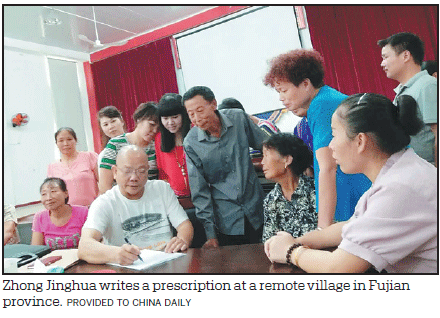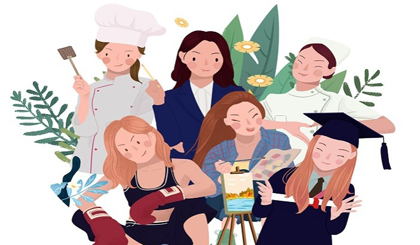Family cure remedies headaches of the poor
By Li Lei in Beijing and Hu Meidong in Fuzhou| China Daily Global| Updated: Nov 7, 2019
Ancestral herbal medicine prescriptions, known as mifang, are usually considered family assets and kept secret for business reasons.
But over the last three years, Zhong Jinghua has widely handed out free homemade painkillers to poor farmers in his home province of Fujian, in a show of support for the nationwide campaign that strives to eliminate absolute poverty in China before 2021.
Equipped with the formula left behind by his forefathers, Zhong has traveled to some of the remotest villages in the coastal region. So far, he has helped more than 380 villagers grappling with migraine, which is a major health issue in the humid southern provinces as dehydration and exhaustion tend to increase the risks. Severe bouts of the painful condition can also damage a person's chances of employment.
Because he has no medical qualifications, the 61-year-old's miraculous cure was often questioned when he first tried to promote it. Despite offering his drug free of charge, only six farmers agreed to gave it a shot. But after their pain abated and did not return, the medicine's reputation grew, and many of Zhong's doubters quickly became loyal and grateful patients.
The beneficiaries of the mifang's pain-relieving qualities marveled at the ancestral wisdom, which had proved effective in easing headaches associated with maternal issues such as postpartum discomfort, and menstruation.
"I'm a believer in traditional Chinese medicine," Zhong said. "But research in the field is insufficient, and many Chinese mifang ingredients were leaked to overseas medicine makers and developed into lucrative pills."
Born in 1958 in Anxi, a coastal county in Fujian, Zhong decided to try his luck in the nearby city of Xiamen in the 1980s to ride the economic wave of China's reform and opening-up.
He started as a taxi driver, but quit to seek greater financial rewards in the real estate industry. He also invested heavily in a gold mine in Yunnan province, which failed.
Zhong's life was not connected to the secret formula till the new millennium, when his extended family decided to renovate their old house in Anxi.
As the restoration proceeded, the Zhong family discovered a book hidden on the house's beam, which contained what appeared to be names of herbs widely used in the traditional medicines of the She, Zhong's ethnic group.
To quell his curiosity, Zhong sought out help from senior She medicine specialists, and was told that the formula could be for a mifang used to treat migraine. Some brave relatives suffering extreme headaches took an experimental dose and found relief, which fueled Zhong's attempts to help more people with the medicine.
Over time, Zhong's eagerness and altruism earned him popularity and fame. He was named one of 10 civilian heroes last year by the Xiamen municipal government.
In Chixi village, which Zhong has visited nine times, he is celebrated as a kindhearted healer.
"My sister and my sister-in-law in Jiangxi province heard of him and traveled all the way here. We're all appreciative of him," said Yang Lin, 40, a Chixi villager.
Contact the writers at lilei@chinadaily.com.cn




 play
play